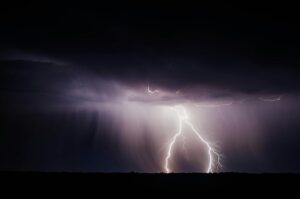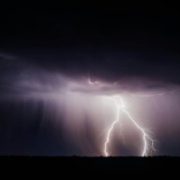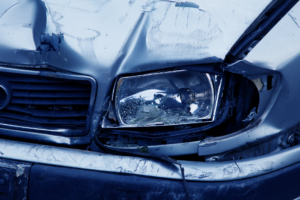How to Prepare For a Disaster
 Disaster preparedness is a topic that warrants our attention at any given time. It is essential to assess and update your family’s emergency kit regularly. Disasters, both natural and man-made, can strike anywhere, making it imperative that your family is well-prepared.
Disaster preparedness is a topic that warrants our attention at any given time. It is essential to assess and update your family’s emergency kit regularly. Disasters, both natural and man-made, can strike anywhere, making it imperative that your family is well-prepared.
While some may dismiss the idea of having a disaster preparedness kit in their home as unnecessary or even silly, the reality is that every state in our country is susceptible to natural disasters such as earthquakes, tornadoes, hurricanes, floods, and even volcanic eruptions. Taking proactive steps to prepare for these events can be both quick and cost-effective, while also serving as an opportunity to educate your family about safety during emergencies.
According to ready.gov, a basic home preparedness kit should include the following:
- Water: Allocate 1 gallon per person per day, ensuring a minimum 3-day supply.
- Food: Stock non-perishable items such as canned tuna, canned fruits and vegetables, nuts, dried fruit, low-sodium crackers, and soups. Additionally, consider dry mixes that do not require refrigeration. Store food in tightly closed containers to extend its shelf life and protect it from pests. Remember to rotate food and water supplies every six months to ensure freshness.
- Battery-powered radio: This is essential for receiving emergency information and staying updated during a crisis.
- Flashlight: Include extra sets of batteries. Opt for an LED flashlight, as it requires less energy to operate.
- First aid kit: Prepare a comprehensive first aid kit with essential medical supplies.
- Whistle: This simple tool can be used to signal for help in emergency situations.
- Dust masks, plastic sheeting, and duct tape: These items are crucial for sealing off an area from contaminants and creating a safe zone.
- Moist towelettes: Maintain basic hygiene with these convenient wipes.
- Manual can opener and pocket knife: Ensure you have the necessary tools to access food and other supplies.
- Cell phone with a solar charger: Keep your communication lines open by including a cell phone and a solar charger to ensure you can charge it even during power outages.
- Additional items that could be included in your emergency kit are prescription medications, diapers (if applicable), pet food, and blankets. Store the kit in a designated area where your entire family can easily locate it when needed.
Remember, disaster preparedness is a continuous process. Regularly check and update your emergency kit, ensuring that all supplies are current and in good condition. Stay informed about local emergency procedures and create a family emergency plan so that everyone knows what to do and where to meet in case of an emergency.
By taking proactive measures to prepare for potential disasters, you are prioritizing the safety and well-being of your family. A well-stocked and readily accessible emergency kit can make a significant difference during times of crisis.



 Being involved in a hit and run accident can be a distressing experience. Knowing how to handle such situations and being prepared in advance can help you navigate the shock and ensure you are adequately covered for any losses. While hit and run incidents can happen to any driver, whether their vehicle is parked or in motion, understanding the following steps will assist you in dealing with this unfortunate situation.
Being involved in a hit and run accident can be a distressing experience. Knowing how to handle such situations and being prepared in advance can help you navigate the shock and ensure you are adequately covered for any losses. While hit and run incidents can happen to any driver, whether their vehicle is parked or in motion, understanding the following steps will assist you in dealing with this unfortunate situation.
 While most of us hope to never experience a catastrophic home loss, it is crucial to be prepared in the event that such a disaster strikes, whether it be a flood, fire, earthquake, or any other unforeseen calamity.
While most of us hope to never experience a catastrophic home loss, it is crucial to be prepared in the event that such a disaster strikes, whether it be a flood, fire, earthquake, or any other unforeseen calamity.